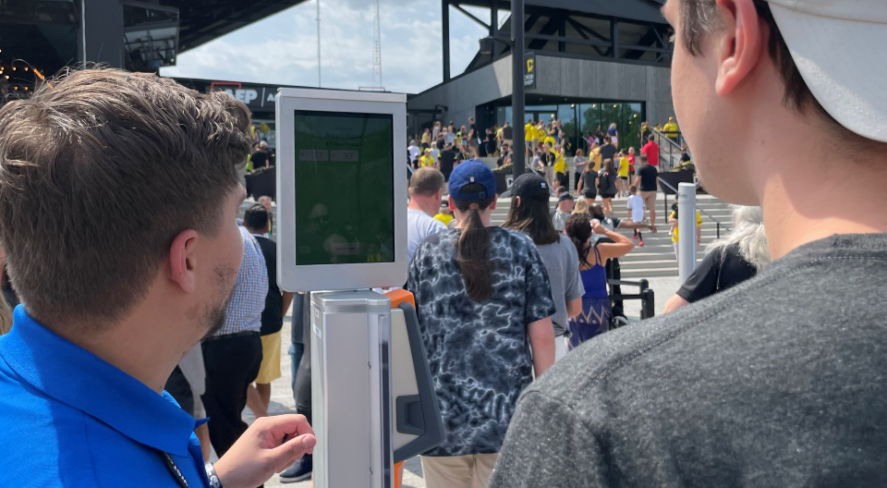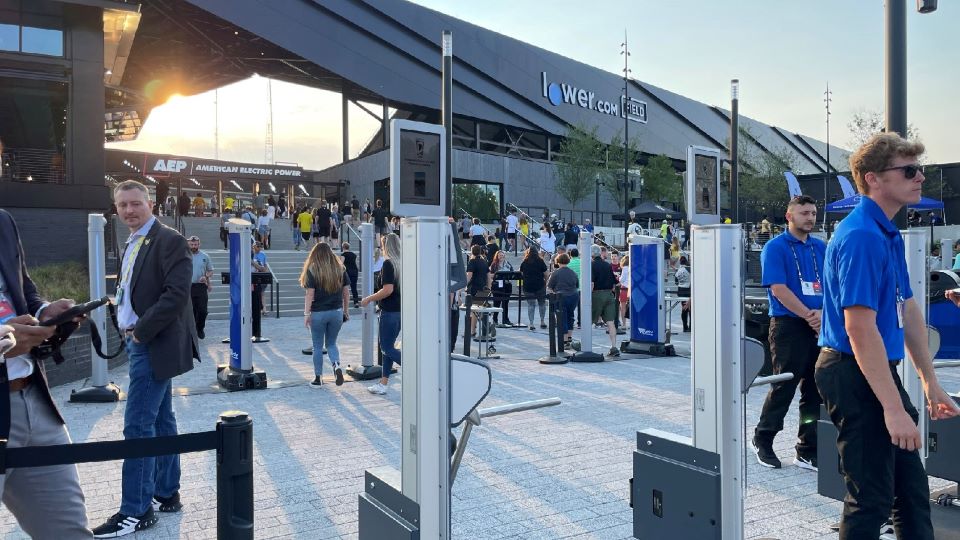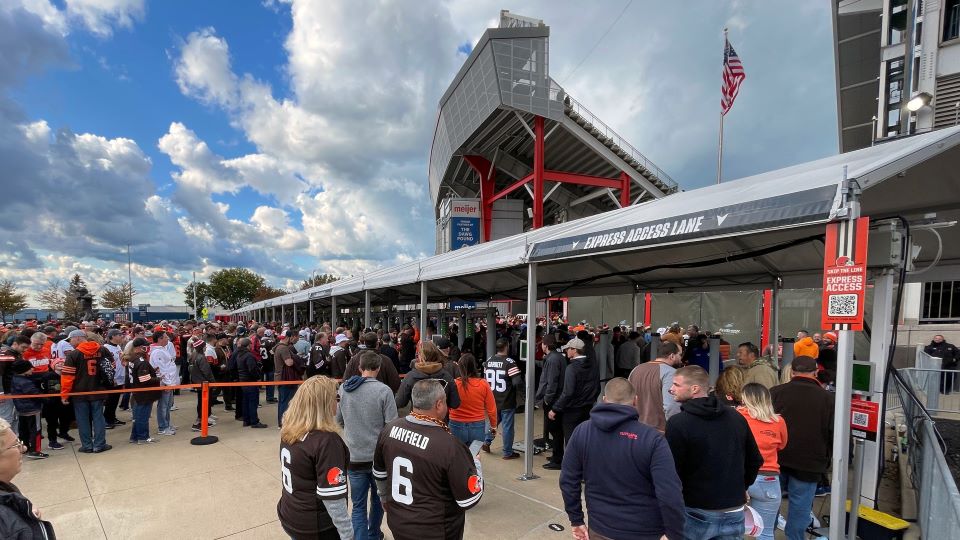SIA New Member Profile: Wicket

New Security Industry Association (SIA) member Wicket offers computer vision technology for facial ticketing, access control, frictionless payment and credentialing. The company is headquartered in Cambridge, Massachusetts, with an additional office in Doylestown, Pennsylvania, and customers across North America and in Europe.
SIA spoke with Jeff Boehm, chief marketing officer at Wicket, about the company, the security industry and working with SIA.
Tell us the story of your company.

Jeff Boehm: In the summer of 2020, as stadiums were looking for ways to reopen in the midst of the COVID-19 pandemic safely, the Cleveland Browns approached Wicket with a challenge: could we help them get fans back into the stadium while respecting all COVID-19 mandates, including fans wearing face masks, social distancing and limited physical contact? Based on advanced facial recognition technology Wicket had already developed, we worked with the Browns to test and deploy a facial ticketing solution that allowed a fan to just walk up, have their face authenticated (even with a face mask on) and walk into the stadium in less than a second – no showing or sharing mobile bar codes, removing face masks or congregating in long ticketing lines.

Now, three years later, the Browns have seen more than 50% of their season ticket holders enroll in the program and have been able to reduce ticketing lanes by 75% and clear gates 10 minutes faster, all while saving $8,000 per Wicket ticketing lane.The Browns have expanded the use of Wicket facial authentication across the stadium and their practice facilities, eliminating the need for physical credentials for access to secure areas of the stadium, improving the suite and club entry experience and streamlining concessions purchases with facial payments.
Wicket has taken this platform to numerous additional sporting facilities, corporate offices, and other ticketed events, becoming the leader in facial authentication solutions that delight fans, guests, and employees while strengthening security for live events and facilities.
What solutions/services does your business offer in the security industry? And what makes your offerings or your company unique?
JB: Wicket markets facial authentication solutions that improve fan/guest/employee satisfaction, simplify facility operations and strengthen security. Wicket technologies have sped up facility access, increased revenue and lowered operating costs for numerous sports stadiums, corporate offices and live events.
Wicket is a privacy-first facial authentication company – all of our facial authentication products are opt-in only. Registered individuals submit their images by choice for speedy facility access and other benefits. Data is always encrypted, deidentified, wholly owned by the customer, will never be shared or sold to a third party and is discarded after a set period of time. Wicket is GDPR and SOC2 Type II compliant, as well as ISO 27001 certified.

What is something we might not know about your company – or something new you are doing in security?
JB: Facial authentication is a foundational technology that can be employed in myriad use cases across industries. Wicket believes in a customer-first approach where we partner with innovation leaders in key industries to prove out the technology’s applicability before widely marketing those solutions. To that end, Wicket started with sports, where we have been successfully deployed in some of the biggest and most advanced stadiums in North America for the past three years. We are now working with some of the most reputable conference organizers, proving the software’s value for large industry conferences, while also working with leading firms in aviation and general industry on improving access control to secure facilities. We will continue to expand to new use cases as we can prove success with pioneering partners.
What is your company’s vision, and what are your goals for the security industry?
JB: Wicket believes that biometric technology can dramatically improve user experiences across a wide variety of industries while also strengthening security – this, in turn, can reduce facility costs while also increasing revenue opportunities.
We have all become accustomed to using biometric technology to access our cell phones. Wicket believes this same approach should be used any time you need to validate your identity to perform an action (e.g., entering a ticketed event, making a purchase or accessing a secure area).

What do you enjoy most about being at your company – and in the security industry?
JB: Seeing the positive impact biometric technology can have on large facilities and their fans and guests is truly rewarding. We’ve all been frustrated with long lines and painful identity verification processes to enter a stadium, access a secure facility or make a purchase. It is great to see users’ faces when they realize how easy, reliabl and secure facial authentication technology is.
What does SIA offer that is most important to you/your company? And what do you most hope to get out of your membership with SIA?
JB: SIA provides an important educational and advocacy function for companies like Wicket in sharing news and best practices and advocating for responsible usage of biometric technology to improve individual and business interests. Wicket is proud to be partnering with SIA in advancing responsible facial authentication.
The views and opinions expressed in guest posts and/or profiles are those of the authors or sources and do not necessarily reflect the official policy or position of the Security Industry Association.
